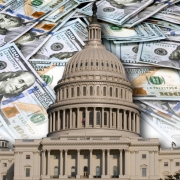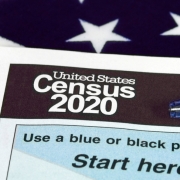California is no stranger to excessive taxation. In fact, The Golden state even has a “fruit tax” that taxes consumers 33 percent for buying fruit from a vending machine. Though oddly enough, there is no fruit tax applied to purchases made in a grocery store. But now, in an unprecedented move, the state recently attempted to levy a tax on text messaging highlighting just how abusive the system really is.
Taxing The Telephone
California’s Public Utilities Commission (CPUC) is the agency given jurisdiction over all telecommunications within the state. Since telephone calls fall under the category of “telecommunications” the CPUC has the legal authority to tax each call and has been doing so for years. But now, CPUC would like to extend this tax to text messages, in an attempt to extort more money from its residents.
Long before mobile devices were the norm, landline telephones were in practically every residence. And it didn’t take very long before the government found a way to profit from this modern convenience. Public Purpose Programs or PPPs were created as a means of taxing telephone users. The purpose of these PPPs was to charge telephone users a surcharge for each telephone call they made. This money would then be added to a fund that was used to subside services for those with lower incomes in order to help them pay for other utilities, like electricity and gas.
When the internet came into being, the CPUC was not able to tax internet use since the industry was able to define itself as “information services” rather than a traditional form of “telecommunications.” Since both email and web browsing were quests for information, rather than just communication, the internet was safe from the greedy hands of the government.
But now that text messaging has been around for over 20 years, the government has finally found a way to justify another means of stealing money from California residents.
The Text Messaging Tax
Since text messaging has become a primary form of communication for younger generations, and just about everyone else, the PPPs funding has decreased by ⅓. But instead of readjusting the budget in order to make it more feasible with the lost revenue, the budget for these PPPs has actually doubled as its funding has decreased. But as is typical of the public sector, the CPUC has chosen to take this money from California residents, rather than go back to the drawing board and slash the budget.
If the new tax is levied, it would bring in an additional $44 million a year. But as if this wasn’t bad enough, there was also talk of retroactively applying this tax for five years, which would cost Californians upwards of $220 million. However, there was no proposal for exact rates, so these numbers are speculative. It is also unclear whether or not the state was planning on levying a “per text” rate, or if it would be a flat rate included on all California taxpayers’ monthly phone bill.
CPUC spokeswoman Constance Gordon spoke very matter-of-factly about the proposal, saying:
“From a consumer’s point of view, surcharges may be a wash, because if more surcharge revenues come from texting services, less would be needed from voice services. Generally, those consumers who create greater texting revenues may pay a bit more, whereas consumers using more voice services may pay less.”
The telecommunications industry is obviously not happy about this and is insisting that like email, text messaging falls under the category of “information services, making them exempt from this ridiculous tax.
Jim Wunderman, president of the Bay Area Council business-sponsored advocacy group, commented on this absurdity, saying, “It’s a dumb idea. This is how conversations take place in this day and age, and it’s almost like saying there should be a tax on the conversations we have.” Hopefully, this comment didn’t give the California government any further ideas.
Still, it is likely that if the proposed tax became a reality, many consumers would just switch to using messaging apps instead. Already, many people rely on apps like Facebook messenger or What’s App to communicate with their contacts. Since these apps are a more clearcut and defined example of “information services,” they are free from government taxation. And while this is great for consumers, since it creates a loophole, it would be mobile phone providers at a loss.
CTIA, a firm that represents major mobile service carriers including AT&T Mobility, Sprint, T-Mobile, and Verizon complained to the FCC. In its filings, it said, “Subjecting wireless carriers’ text messaging traffic to surcharges that cannot be applied to the lion’s share of messaging traffic and messaging providers is illogical, anticompetitive, and harmful to consumers.”However, this absurd story has a happy ending.
A Happy Ending
In order to legally institute this tax and levy it on residents, the CPUC needed the approval of the FCC. Originally, the proposed tax was not set to be voted on until January 10, 2019. But for California consumers, Christmas came early this year.
Last week, the FCC issued a new rule officially declaring that text messages fall under the realm of “information services,” keeping them out of reach from the CPUC. While the CPUC could have pushed the issue, which may have resulted in it being brought before a judge, it has decided against this. CPUC Commissioner Carla Peterman has since withdrawn the proposal, sparing California residents from this monstrosity of a tax.
Unfortunately, California serves as a prime example that the government will literally try to tax anything it can, no matter how ridiculous it may be.













